|
/20th_2.jpg)
<<click here for archives >>
Vol. 22, No. 1
February/March 2017
Published three times annually by the Mass Communication Division of NCA.
Publications/Web Editor - Zac Gershberg, Idaho State University
Sponsored by:
In this issue:

We're on Facebook! 662 members and counting...
...click [here] and join us today!
Welcome from the Chair
Lubbock, TX -- In this issue, I wanted to thank our past chair, Sumana Chattopadhyay, and all our wonderful MCD officers.
I also wanted to introduce myself to the members of the Mass Communication Division as the new chair, and to share with you my excitement about our division.
First, Sumana Chattopadhyay has done a great job of managing the division and keeping us on track this past year. In addition, I would like to thank Meghan Sanders, Vice Chair, and Elizabeth Behm-Morawitz, Vice Chair Elect, for their amazing efforts for this division. I would like to thank Anji Phillips for her outstanding job as our secretary. Hugh Phillips Curnett, Tracey Worrell, and James Durbin did a wonderful job planning our 2016 NCA MCD programs. Thank you to Stan Tickton and Shane Tilton for serving on legislative assembly for the MCD division. Thank you to Laramie Taylor for being our parliamentarian. A huge thank you to our nomination committee members and our graduate student representative. Most importantly, I would like to thank Zac Gershberg for his work on Gatekeeper and web editor.
I am so honored to be the chair of one of NCAs largest and best divisions. In addition to being an associate professor at Texas Tech University, I am also an assistant dean of international affairs. I like to conduct research on media effects, social media, and how media influences our perceptions of other people. This year will be an interesting year due to current events, political twitter feeds, media programs, and social media outlets to really analyze media effects.
I look forward to receiving many, many submissions for our November conference in Dallas, Texas (my hometown) and encourage you to submit to this conference! Submissions are now being accepted for MCD. Please keep the deadline of March 30 (11:59 PM PACIFIC) in mind while planning to submit to the 2017 convention. More details can be found here.
One of the strengths of the MCD division over the years has been our diversity in scholarship spanning a wide range of topics, theoretical perspectives, and methodologies. We accept individual competitive papers, paper sessions, and panel discussions. Please read the MCD call for papers here.
Also, just a gentle reminder to please select MCD as one of your membership divisions when you renew your NCA membership this year. Your membership makes a big difference to the division. It provides the division benefits such as more sessions at the convention, greater number of representatives at the NCA Legislative Assembly and the best times/venues for our division's sessions.
I look forward to seeing y'all in Dallas!
Don't forget to keep up with MCD events and happenings through the Gatekeeper online, our MCD Facebook page, and twitter account (remember to add the hashtag #ncamcd to your tweets).
Feel free to share any news and announcements that would be of relevance and interest to our members!
Please write to me if you have any questions or ideas relating to our division.
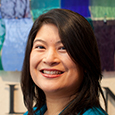 Dr. Narissra M. Punyanunt-Carter Dr. Narissra M. Punyanunt-Carter
Chair, Mass Communication Division
Texas Tech University
n.punyanunt@ttu.edu
<<back to top>>
Editor's Note
Pocatello, ID -- Please enjoy reading through this new issue of The Gatekeeper. I'm excited to welcome Dr. Narissra Punyanunt-Carter as our new chair and thank all of the other officers, old and new, for their service.
This issue features a timely Gatekeeper Scholar Chat with Dr. Zizi Papacharissi from the University of Illinois - Chicago. Her work focuses on democracy, communications technology, and digital citizenship.
Please pass along ideas for future issues of The Gatekeeper. I'd like to add more content on research and pedagogy moving forward. Our next issue is this summer!
All the Best,
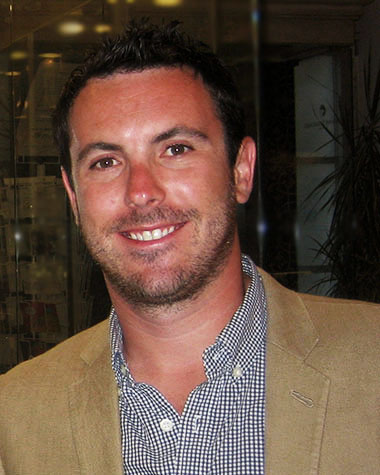 Dr. Zac Gershberg Dr. Zac Gershberg
Publications and Web Editor, The Gatekeeper
Idaho State University
gerszach@isu.edu
<<back to top>>
Announcements
Athens, OH -- As the NCA Immediate Past President, I am chairing the 2017 NCA Committee on Committees. This committee performs the important task of nominating members to fill vacancies on NCA standing committees, councils (formerly known as “boards” under our old bylaws), and award selection committees. I’m reaching out to you because I would value your help in encouraging members of your unit to apply for open leadership positions and/or to nominate others. These positions constitute meaningful ways for our members to get more involved in NCA, to meet individuals from across the association, and to provide essential service to the association through work on the respective committees or councils.
I hope that you will join me in spreading the word about the availability of these positions. If your interest group has a Facebook page, website, and/or electronic newsletter, please consider sharing this link to the call at www.natcom.org/governancecall. In advance, thank you for your help in urging members to apply and/or recommending possible nominees!
Nomination materials are due September 1, 2017. I’m contacting you now so that we can make our members aware of these leadership and service opportunities in NCA before we bring this academic year to a close and transition to the summer months. (This deadline will likely come quickly for many after the fall term begins.)
If you have questions about any of the open positions or the Committee on Committees process, please contact the Committee on Committees’ staff liaison and NCA Chief Operating Officer, Mark Fernando, at mfernando@natcom.org. As always, if you (or any of our members) would like to visit with me for any reason, please don’t hesitate to contact me at Beck@ohio.edu.
Again, thank you for all that you have contributed to NCA and our discipline!! I’m grateful to you for any help that you can offer as we strive to get even more of our members involved in leadership and service roles within NCA.
Best regards,
Christie
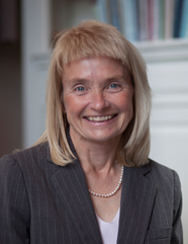
Dr. Christina S. Beck
Past President, National Communication Association
Professor, Ohio University
beck@ohio.edu
<<back to top>>
Gatekeeper Scholar Chat
Dr. Zizi Papacharissi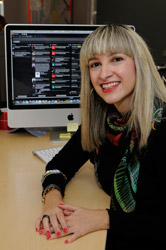
Chicago, IL -- Dr. Zizi Papacharissi is a professor and chair of the Department of Communication at the University of Illinois - Chicago. A onetime editor of The Gatekeeper, Papacharissi hails from Greece originally but came to the United States for graduate study, earning a Ph.D. at the University of Texas - Austin. Her work, which includes over 50 refereed journal articles and several books, focuses on the social and political consequences of online media. Affective Publics: Sentiment, Technology and Politics is her most recent book, published in 2014, and Papacharissi serves as the editor for the Journal of Broadcasting & Electric Media and Social Media & Society.
We spoke via Skype in late February:
Gatekeeper: Your work over the course of the last decade deals with democracy, politics, communications technologies, and digital citizenship. Now we have all these convulsions across the globe, from Brexit to the Turkish coup controversy to President Donald Trump. Did your research anticipate some of these dramatic changes in the public sphere?
ZP: I didn’t plan to, but that’s a good question. I’m actually teaching a grad seminar right now, titled “After Democracy, What?”, and I got the idea because a lot of people are wondering whether democracy is the best we can do and many are disillusioned. Democracy gives everyone the right to vote and voice their opinion, but it doesn’t mean you’re always going to get your way. That’s where people get it mixed up: they vote and then wonder why they didn’t get their way.
But it’s not just Trump; consider all the referenda that are happening across the globe and Austria almost elected a Nazi candidate. When I put this course together I didn’t think we’d be talking about the U.S. context, but more how technology lets us reimagine democracy. Some of what we’re reading from before this time is remarkable, like Michael Schudson’s Why Democracies Need an Unlovable Press.
Gatekeeper: Since your work is about new media and democracy goes back to Ancient Greece, I’m wondering if these new populist changes are just a part of its evolution or what we’re experiencing is truly new and different.
ZP: We’ve seen similar tendencies in the past and society often works in cycles. In the process of getting through these periods democracies can reinvent themselves in interesting ways. Nobody has a crystal ball, and we need to find the terms to explain what’s going on. Ulrich Beck, for instance, wrote about cosmopolitanism and was criticized for using this abstract concept, but here we are now. But he said in order to survive we need to be more cosmopolitan, and in the U.S. and elsewhere, that’s what we need.
When I wrote Affective Publics (2014), I was writing a book about revolutions in the making. I was writing about social media and the infrastructure it has for social movements. My concern at that time was with the Arab Spring and Occupy [Wall Street] as examples, but now, when I give that talk, I use #MAGA [Make America Great Again] because that is the same thing on the other end. Scholars describe phenomena, but maybe we don’t realize that it doesn’t move in a particular direction. If the concept is strong, it can explain a variety of different things. People who support #MAGA deserve the right to have their say, but we need to expand for all voices so we can empathize and understand our own narratives and rhetorics.
Journalists must be able to talk to those communities. There’s been talk that journalism as a profession is becoming a blue-collar occupation, and I hope they step down from the throne.
Gatekeeper: When we think of journalism and the news media, we tend to think of reporters working in New York and Washington, DC, but they often start off working in small towns making $25k. Our perception is often these big columnists and television anchors, though, which is a different lifestyle.Just as with the media, those perceptions affect the academy. I’m curious what your thoughts are about scholars in mass communication and media studies. What role should scholars play in public life given the recent populist fervor?
ZP: It’s difficult to generalize because there’s a lot of thoughtful pieces being written, but we should be a resource for media and journalists to turn to explain these trends more than the regular talking heads. They’re saying the same thing over and over again and increasing the distance from the public. [Scholars] should actively try to produce scholarship that takes a more accessible tone that makes sense to the public. We should be thinking, then, of how to advance our field and making our work more relatable to broader publics. It’s not for everyone and sure, it’s easier to do that once you advance into tenure and full professor positions. But we need to learn to speak in a media friendly way.
Gatekeeper: One would think as communication scholars we’d be able to do that.
ZP: We have to learn to actively seek out connections and reach out to people. In the U.S., when you interview on television, there are restrictions on time and ways to speak; in Europe, things are very different. It seems there are many media outlets, though, and hopefully they’ll be willing to engage academic discussions.
Gatekeeper: So I’ve been waiting to ask you think -- and please excuse the sensationalist nature of it -- but, since you have published a piece on the Performances of the Self on Twitter, what do you make of that platform and the new president, who communicates so frequently on it?
ZP: You know, when I first ran that study, I was focused on the average user who could communicate in 140 characters or less. But I took inspiration from an exhibit at the Art Institute of Chicago that explored the relationship between the artist and the audience, without [whom] the art would mean nothing. Applying it to Twitter, the audience is very important and it became very clear to me that, despite the condensed form of expression, people create these striking performances. Who knew most of them would be so playful? People can use different personas and personalities.
Gatekeeper: <only a little sarcastically> So are you saying President Trump has concocted a great work of performative art?
ZP: I think he tried out a particular performative strategy, but it’s not very playful in that he’s thin-skinned and doesn’t engage. However, his strategy works for him. We definitely see a different persona than what he projected with The Apprentice or with the Birther conspiracy. It’s very interesting to study his tweeting. There’s a definite rhythm to them, which always start with a statement, then provide a counterstatement and exclamation point. This happened, here’s my reaction, and exclamation point. There’s a certain musicality to them. It mobilizes the sentiment of his public, but does nothing for logic.
Gatekeeper: Mobilizing his public is such an apt phrase at this time. As we’ve talked about your past research, I’m wondering where you see yourself moving forward -- and even that of our field.
ZP: I’m editing five volumes, so I’m using this opportunity to give my brain a massage and let the ideas come out. I’m interested in artificial intelligence, robots, and human/machine interaction, which I’m reading a lot about right now and thinking about. The Internet is not new media anymore, and the new media are AR, VR, robotics -- and even those aren’t super new. As a field, I think we should move there full speed.
Also, there was a time when I think it made sense, as a field, to grow and divide into subdisciplines, but it’s time to realize all of the technology we have is converging. Instead of dividing and conquering, now is the time to move together -- mass comm, political communication, computer-mediated technology, communication and technology. The distinctions no longer hold so we can think of ways to reorganize.
Gatekeeper: When you suggest these divisions should collapse, do you mean from an organization level -- NCA, ICA -- or from a scholarly focus.
ZP: We should rethink these divisionary boundaries and do away with them, but journals need a name so I understand the need. Maybe this is an exercise in power and I don’t have all the answers, but organizations should be more topical and flexible. The terms don’t really make a lot of sense anymore. At conference I feel like the pre-conferences are where all the action is.
Gatekeeper: As we’ve heard a lot lately about fake news, what do you think, from a pedagogical perspective, as to how to help with media literacy, digital literacy, and citizenship -- is that something we should explore?
ZP: That’s the answer to everything. Literacy is part of what we do every day and I can’t separate it. When we go in the classroom and talk about what students are seeing on Facebook and Twitter, that’s literacy. If you’re a successful educator you can help students with what’s going on. Fake news is just another name for propaganda. That we use the term to slap a name on something provides people with an opportunity to change the tone and tenor of the conversation. The problem isn’t fake news, though -- it’s that the press isn’t focusing on what’s important. They focus on fake news when the president uses it or when an aide discusses alternative facts.
Gatekeeper: Professors have connections with their students, sure, but with all of these scholarly contributions you’ve made, how do we reach those without access to education to facilitate greater media literacy?
ZP: We need to stay in touch with the world, both our students and beyond. You have to step out of your bubble and use different language. Work with, not against, the multitasking everyone does. In class, I’m 100 percent against policies that don’t let media in the classroom. I want students to google stuff during class. How can you teach fake news without having students look at their feeds? We’re all worried about distractions, but people have always been distracted, and it’s unrealistic to have everyone’s attention all of the time. No one is that interesting.
Gatekeeper: Thank you for talking with me today. Are there any final thoughts you have about the field you’d like to end with?
ZP: Well, I have lots of ideas! First, no divisions. Second, let’s change the presentation style at conferences. It makes sense, I guess, to have 15-minutes to present findings, but we should also have discussions that are more informal that take on different topics which allow more depth. I’ve always wanted a panel with professionals to discuss mistakes and it’d be useful for scholars. So keep some of the formula, but play with it to reinvent conferences so they’re not boring.
<<back to top>>
NCA MCD OFFICERS
| 2016-2017 MCD Officers |
 Chair Chair
Narissa Punyanunt-Carter
Texas Tech University
Department of Communication Studies
1015 Media & Communication
Lubbock, TX 79409
n.punyanunt@ttu.edu |
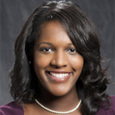 Vice-Chair Vice-Chair
Meghan Sanders
Louisiana State University
Manship School of Mass Communication
217A Journalism Building
Baton Rouge, LA 70803
msand@lsu.edu |
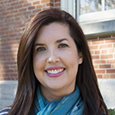 Vice Chair-Elect Vice Chair-Elect
Elizabeth Behm-Morawitz
Department of Communication
University of Missouri
215 Switzler Hall
Columbia, MO 65211
behmmorawitze@missouri.edu
|
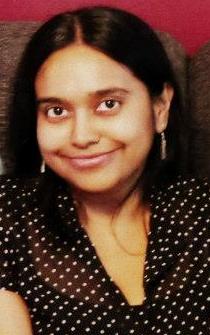 Past Chair Past Chair
Sumana Chattopadhyay
Marquette University
Diederich College of Comm.
403 Johnston Hall
Milwaukee, WI 53233
sumanach@gmail.com |
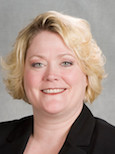 Secretary Secretary
Anji Phillips
Department of Communication
Bradley University
215 Switzler Hall
Columbia, MO
65211
aphillips@bradley.edu
|
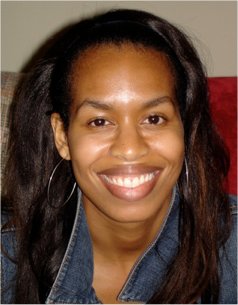 Secretary-Elect Secretary-Elect
Siobhan Smith
University of Louisville
Department of Communication
310 Strickler Hall
Louisville, KY 40292
siobhan.smith@louisville.edu
|
 Publications & Web Editor Publications & Web Editor
Zac Gershberg
Idaho State University
Department of Communication
921 S. 8th Ave., Stop 8242
Pocatello, ID 83209
gerszach@isu.edu
|
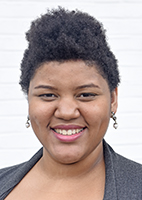 Graduate Student Rep. Graduate Student Rep.
Arienne Ferchaud
The Pennsylvania State University
Penn State College of Communications
201 Carnegie Building
University Park, PA 16802
amf345@psu.edu
|
| Research Committee |
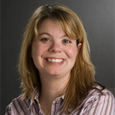 Chair Chair
Tracy Worrell
Rochester Institute of Technology
3041 Eastman Hall
Rochester, NY 14623
Tracy.Worrell@rit.edu |
 First Vice-Chair First Vice-Chair
Tracy Worrell
Rochester Institute of Technology
3041 Eastman Hall
Rochester, NY 14623
Tracy.Worrell@rit.edu |
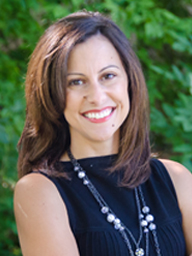 Second Vice-Chair Second Vice-Chair
Nicole Martins
Indiana University
940 E. Seventh St.
Bloomington, IN 47405
nicomart@indiana.edu
|
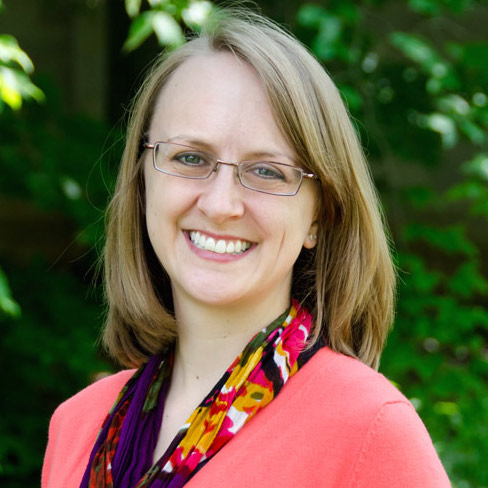 Second Vice-Chair Elect Second Vice-Chair Elect
Jessica Gall-Myrick
Indiana University
The Media School
Bloomington, IN 47405
jgmyrick@indiana.edu
|
| Nominations Committee |
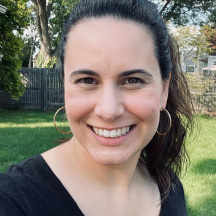 Committee Chair Committee Chair
Valerie Kretz
St. Norbert College
Department of Communication
100 Grant Street, Boyle Hall, 332
De Pere, WI 54115-2099
valerie.kretz@snc.edu |
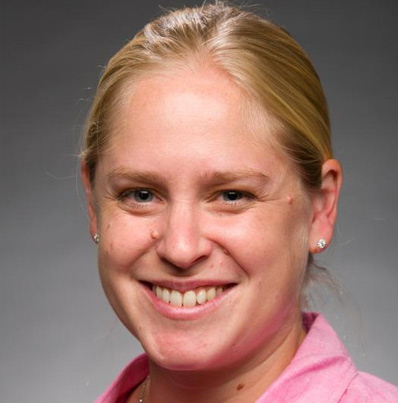 Chair-Elect Chair-Elect
Veronica Hefner
Georgia College
Department of Mass Communication
231 W. Hancock St
Midgeville, GA 31061
vhefner@gmail.com |
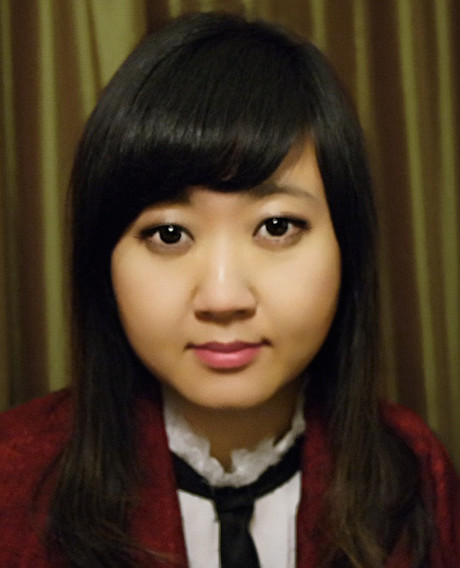 Nominations Committee Nominations Committee
Grace Choi
University of Missouri
Department of Communication
311 Switzler Hall
Columbia, MO 65211
grace.choi@mail.missouri.edu |
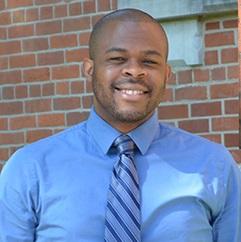 Nominations Committee Nominations Committee
Julius Riles
University fo Missouri
Department of Communication
311 Switzler Hall
Columbia, MO 65211
rilesj@missouri.edu
|
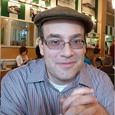 Nominations Committee Nominations Committee
Laramie Taylor
University of California-Davis
Department of Communication
394 Kerr Hall
Davis, CA 95616
lartaylor@ucdavis.edu
|
 Representative to the NCA Nominations Committee & Interest Group Parliamentarian Representative to the NCA Nominations Committee & Interest Group Parliamentarian
Shane Tilton
Ohio Northern University
Department of Communication
Freed PAC 137
Ada, OH 45810
s-tilton@onu.edu |
| Representatives to NCA General Assembly |
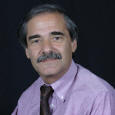 Legislative Assembly Legislative Assembly
Stan
Tickton
Norfolk State University
Mass Communication/Journalism
700 Park Ave., Unit 3249
Norfolk, Virginia 23504
stickton@nsu.edu |
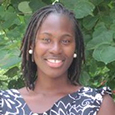 Legislative Assembly Legislative Assembly
Omotayo Banjos
University of Cincinnati
Department of Communication
137 McMicken Hall
Cincinnati, OH 45221
banjooouc@gmail.com |
|
|
<<back to top>>
This site best viewed and navigated with
Internet Explorer 7x or greater, and seems to work fine with Google Chrome and Mozilla Firefox.
(c) 2017 NCA Mass Communication Division
Questions? Comments? Send them to:
Zac Gershberg, Publications and Web Editor
Last Update: 01/13/2016 |
/20th_2.jpg)
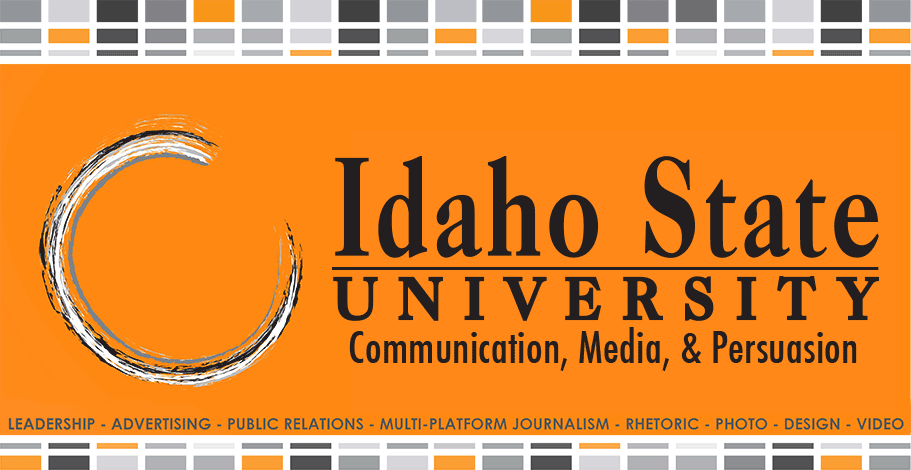


 Dr. Zac Gershberg
Dr. Zac Gershberg


 Vice Chair-Elect
Vice Chair-Elect
 Secretary
Secretary Secretary-Elect
Secretary-Elect Graduate Student Rep.
Graduate Student Rep.
 Second Vice-Chair
Second Vice-Chair Second Vice-Chair Elect
Second Vice-Chair Elect Chair-Elect
Chair-Elect Nominations Committee
Nominations Committee Nominations Committee
Nominations Committee  Nominations Committee
Nominations Committee

 Legislative Assembly
Legislative Assembly